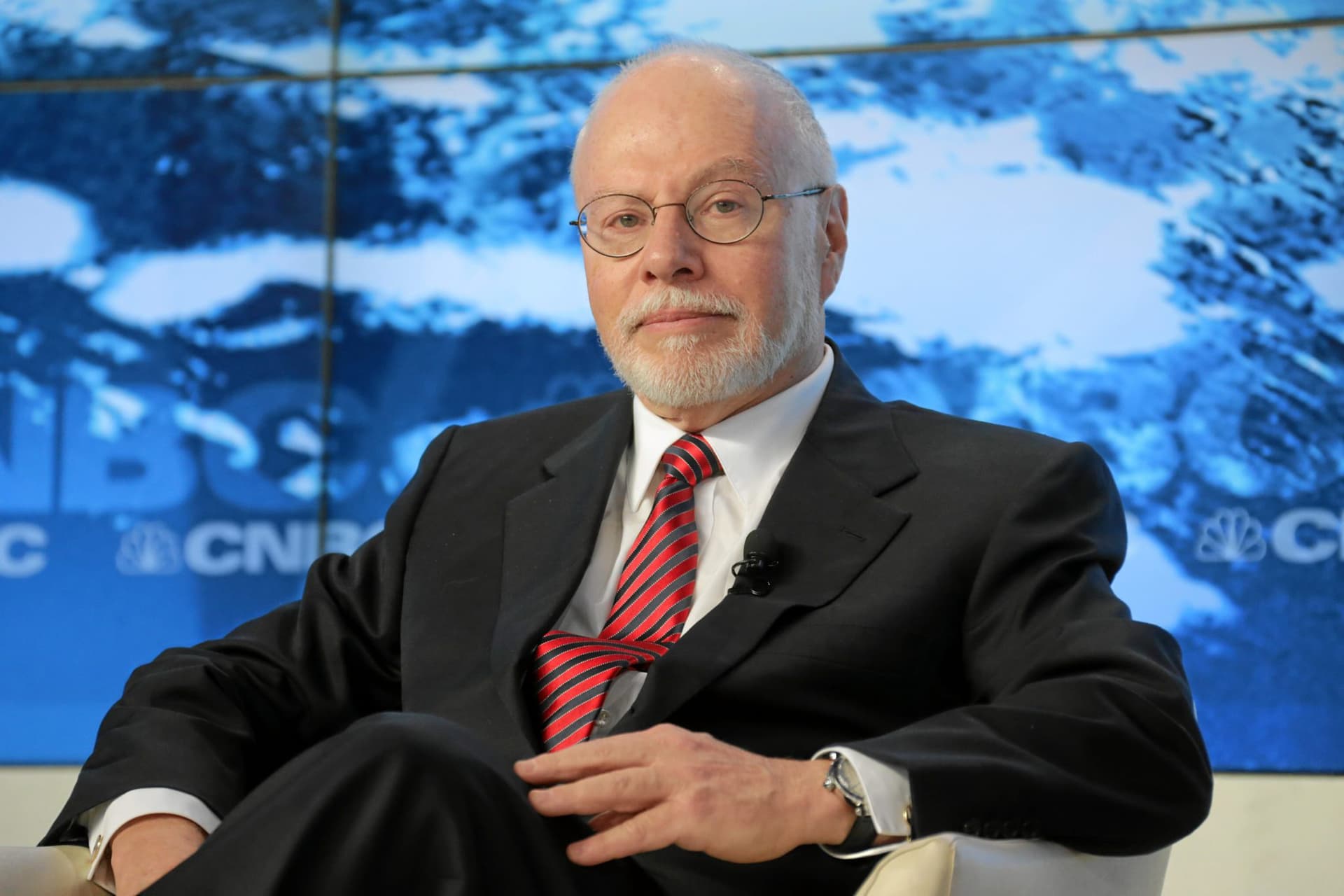Paul Singer: ‘Cryptocurrencies Are Nothing’
Billionaire hedge fund manager Paul Singer has a message for investors in Bitcoin: it may be worth nothing. In a recent interview with Grant Williams, the founder of New York-based Elliott Management pointed to the explosive growth in crypto assets as […]

By World Economic Forum, Remy Steinegger, via Wikimedia Commons
- The hedge fund mogul pointed to growth in crypto assets as a prime example of irrational actors in today’s markets
- Singer also called long-term bonds with near zero yields a “senseless” speculative trade
Billionaire hedge fund manager Paul Singer has a message for investors in Bitcoin: it may be worth nothing.
In a recent interview with Grant Williams, the founder of New York-based Elliott Management pointed to the explosive growth in crypto assets as a prime example of irrational investor activity.
“I’ve been investing for a long time, and I gave up a long time ago trying to base my investment management activities on the concept that markets and investors and traders are rational. People try to be rational and think that they’re rational, but quite frequently they’re not. And there is hardly a better example today than cryptocurrencies.”
Singer’s remarks stand in stark contrast to the recent slew of financial institutions embracing the digital asset, including news that investment giant Blackrock is opening two of its funds to Bitcoin futures.
The hedge fund mogul joins a list of Wall Street holdouts that worry about the rampant stimulus from central banks, but disagree that Bitcoin is the appropriate instrument to hedge that risk.
Singer said, “To tell me that something that’s constructed as a computer program, where you engage in some process of sitting there in front of your computer and after a period of time and the expenditure of a bunch of electricity a message appears on your screen that you have created something, that’s ridiculous. It’s nothing. Gold is not nothing, gold is something, you’ll hurt your teeth if you bite a gold coin.”
Singer, who in April warned that markets may slide 50%, didn’t limit his criticism solely to crypto assets. The long time critic of monetary policy took aim at easy monetary from central banks, which have pushed yields on long-term bonds to historic lows.
“No institution can meet their goals by owning those bonds. They’re no longer a hedge against equity portfolios,” he said. “When you buy something with no yield, where you can only make money if the yield goes from zero to -5 or -10, you’re engaged in speculation, you’re not engaged in investing.”
Singer’s comments highlight a problem that institutional investors are dealing with on a global level. With yields at historic lows, investors can no longer count on these bonds to support their investment objectives.
In what may be an even more troubling development, the inverse correlation between bonds and equities is showing signs of fraying. If that relationship were to break down, not only would it reduce bonds’ utility as a hedge, but it could potentially lead to a massive unwinding of the hugely popular risk parity trade pioneered by Bridgewater’s Ray Dalio.
As worries about inflation bubble to the surface, long-term government bonds are beginning to respond. 10-year Treasury yields are currently hovering around 1.09%, an 18 basis point uptick since the start of the year, while the 30-year yield is up 20 basis points to 1.85%.
While these numbers present only a modest increase, investors concerned about inflation may worry more within the context of the current political climate. Treasury secretary nominee Janet Yellen recently called on congress to “act big,” and Congress is set to vote soon on President Joe Biden’s proposed $1.9 trillion stimulus package.
With political pressure and constant stimulus neutralizing bond yields, institutional capital will look towards new outlets to generate returns. For investors, that means moving out further along the risk spectrum and likely into alternatives such as private equity, venture capital, and digital assets.






